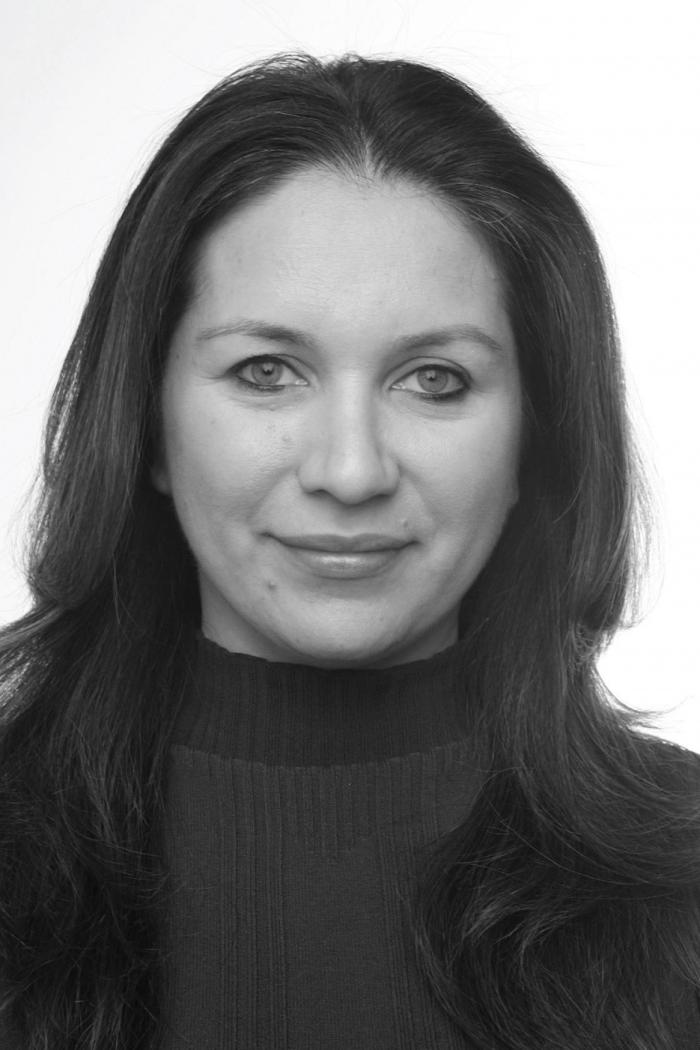Rukmini Callimachi

Rukmini Callimachi
Fellow
Journalist at the New York Times
Rukmini Callimachi has been called “arguably the best reporter on the most important beat in the world.” A four-time Pulitzer Prize finalist, she covers the Islamic State and al-Qaeda for the New York Times, where she regularly speaks to the terrorists both in the encrypted chatrooms they use to communicate with each other and in jailhouse interviews conducted around the world.
She began covering terrorism in 2013, when residents of the city of Timbuktu in northern Mali led her to the buildings that had served as the headquarters of al-Qaeda's local cell. On the floor and in overturned cabinets, she found thousands of pages of internal al-Qaeda documents, which turned on its head the accepted understanding of the terror group. Far from a disorganized militia, Callimachi discovered disciplinary letters indicating that al-Qaeda’s foot soldiers were expected to turn in monthly expense reports, with receipts attached.
Born in Communist Romania, Callimachi and her family fled the country when she was 5 years old, becoming refugees in Switzerland before immigrating to America. Her stepfather was arrested by the regime of dictator Nicolae Ceausescu and spent close to 10 years under house arrest, first in Bucharest and later at a remote location near the Black Sea.
After years of covering city hall and park district meetings at a small newspaper in Illinois, she joined The Associated Press and was posted to Senegal in 2006. She became the news agency’s West Africa bureau chief in 2011, covering a 20-country stretch of the continent, including some of the region’s most complicated conflicts. In 2014, she was hired by the Times, covering first al-Qaeda and later ISIS around the world. Just as she did in Mali, she spent months scouring the buildings that ISIS had occupied in Iraq, amassing one of the largest archives of internal terrorist documents, which has allowed her to write the authoritative account of the group’s inner workings.
“From the time ISIS rose to become the most infamous terrorist organization on Earth, no reporter has done more to explain and expose the group than The New York Times’ Rukmini Callimachi,” Slate Magazine wrote.
Her coverage has consistently broken new ground, beginning with an expose on how al-Qaeda was bankrolling its operations through ransoms paid by European governments to free their hostages. In 2015 and 2016, she was the first to show the extent to which ISIS was using religion to justify the systematic rape of women from the Yazidi minority. That same year, three Yazidi children handed Callimachi the inaugural Integrity in Journalism Award from the International Center for Journalists.
In 2018, she released “Caliphate,” a 10-episode podcast based on a Canadian member of ISIS whom she met in a hotel room in an undisclosed location. In the course of an hourslong interview, he confesses to the murders he says he carried out on behalf of the group.
Besides being a Pulitzer finalist in 2009, 2014 and 2016, she has won the George Polk Award, the Michael Kelly Award for the Fearless Pursuit and Express of Truth and the Sigma Delta Chi Award. She is also the only journalist in the 75-year-history of the Overseas Press Club to win both of the club’s top two reporting awards the same year.

